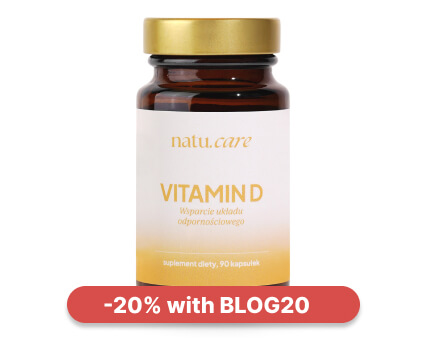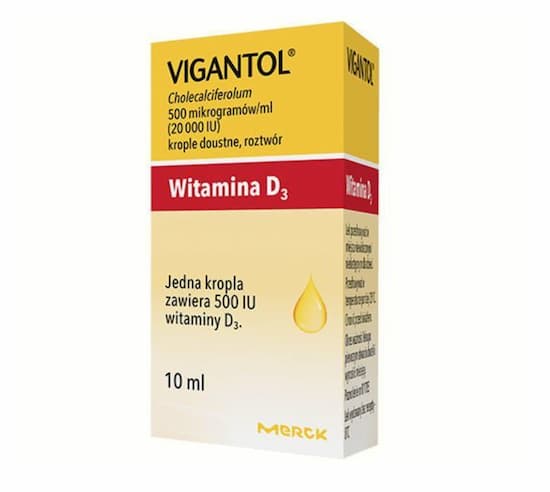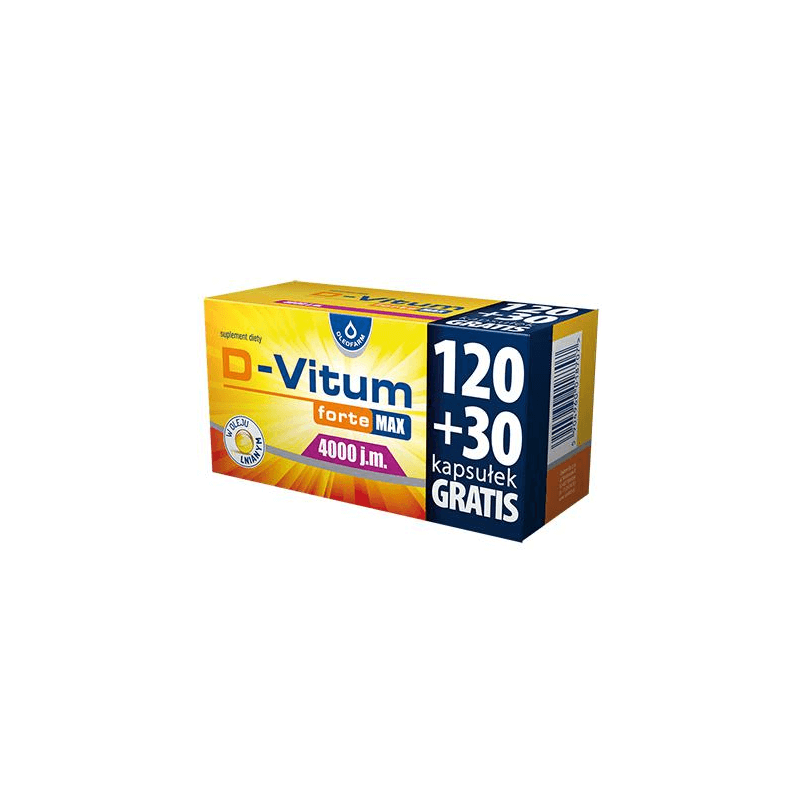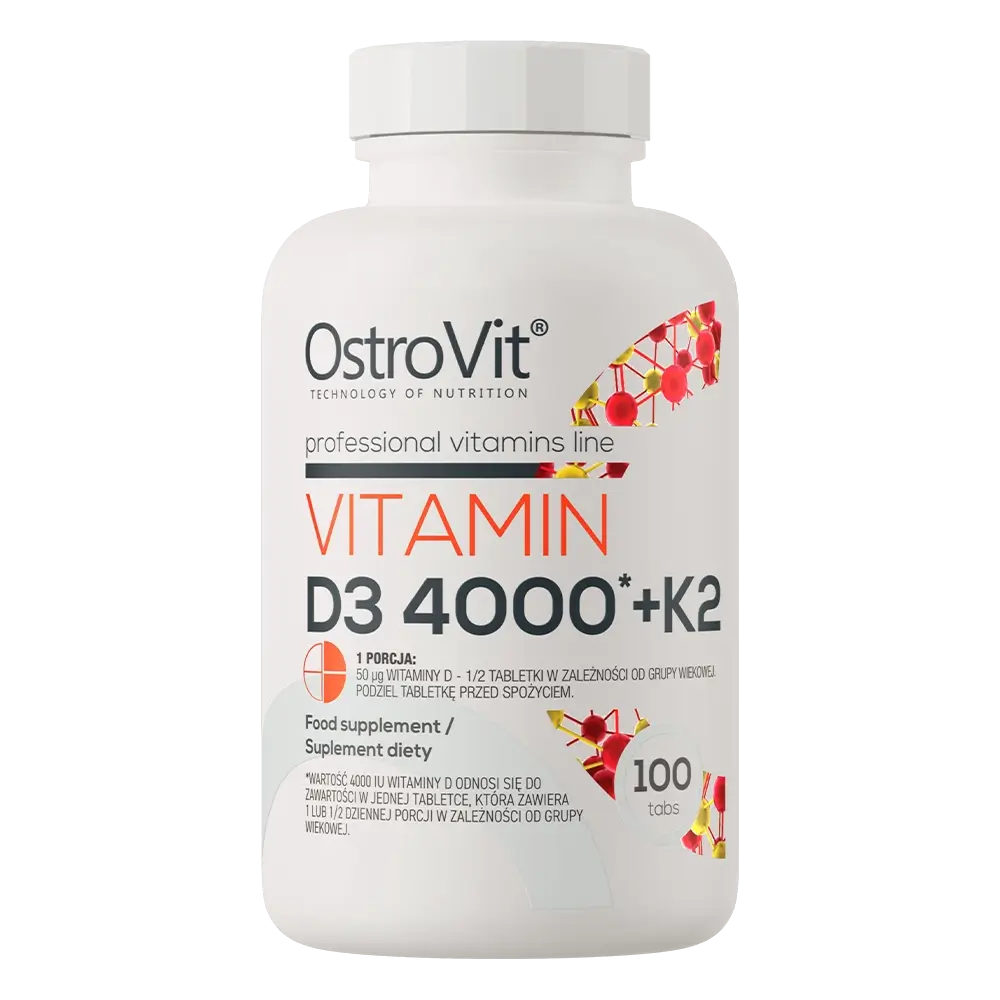Vitamin D overdose. Expert opinion. Check it out!
Vitamin D overdose. Is it possible? Yes! Find out the causes, symptoms, effects and treatment.


Learn more about our editorial process
.

Learn more about our editorial process
.

Learn more about our editorial process
.

Learn more about our editorial process
.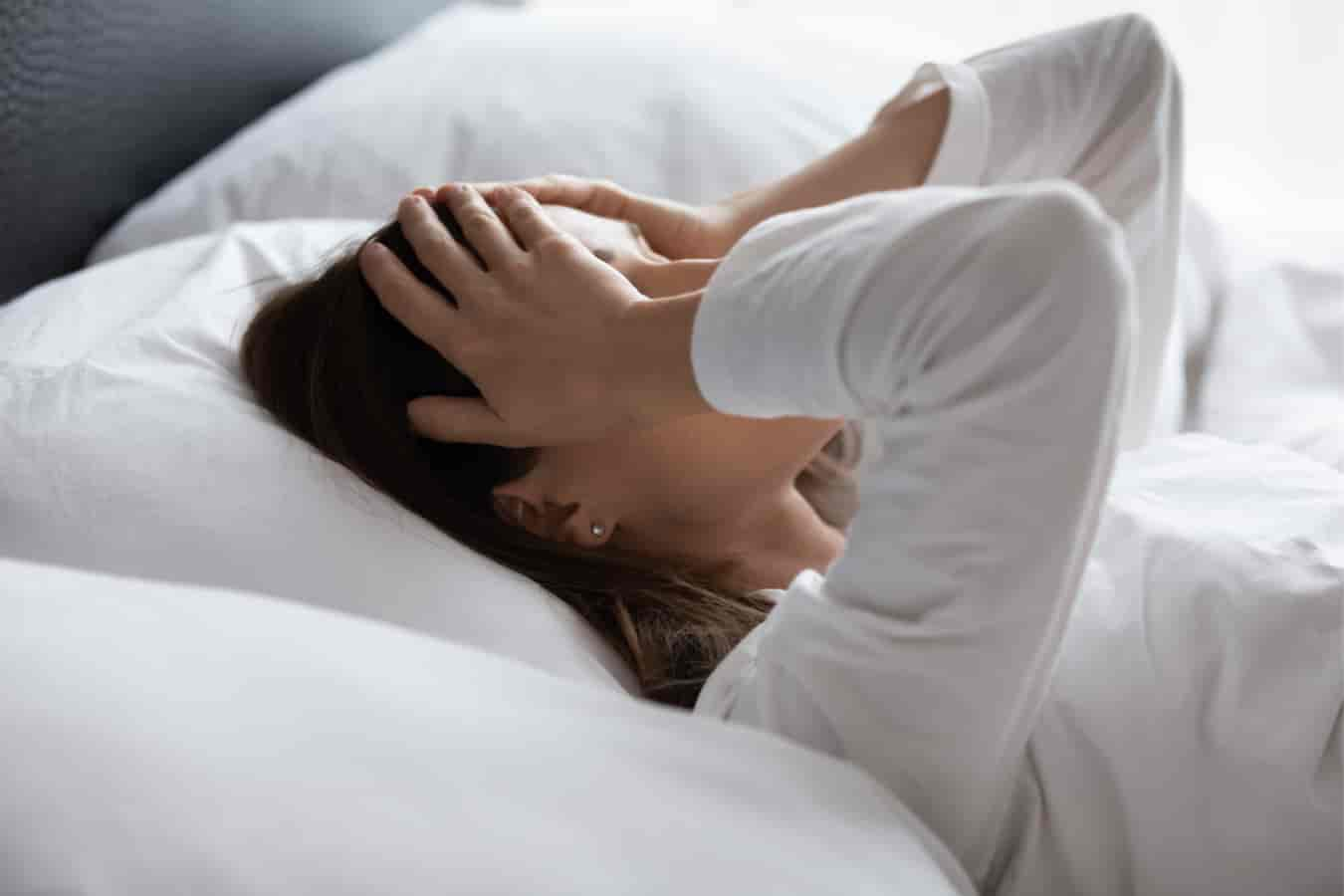
Why you can trust us
Articles on Natu.Care are written based on scientific research, data from government websites and other reliable sources. The texts are written in cooperation with doctors, nutritionists and other health and beauty experts. Articles are reviewed before publication and during significant updates.
.Learn more about our editorial process
.Information about advertisements
Content on Natu.Care may contain links to products from the sale of which we may receive a commission. When creating content, we adhere to high editorial standards and take care to be objective about the products discussed. The presence of affiliate links is not dictated by our partners, and we select the products we review ourselves completely independently.
.Learn more about our terms and Conditions
.Interest in vitamin D is growing. We supplement it because "there is not enough sunshine in Poland". Consuming it on our own without control can have unpleasant health and... financial consequences.
Together with nutritionist Marta Kaczorek, we will explain to you what a vitamin D overdose is, how to prevent it and what a healthy, sensible supplementation is.
Description of contents:
.- Can you overdose on vitamin D? .
- Symptoms of overdose .
- Causes of overdose .
- Diagnosis .
- Treatment
- How to prevent an overdose. Advice from a nutritionist
- Vitamin D for animals... for humans .
- Summary .
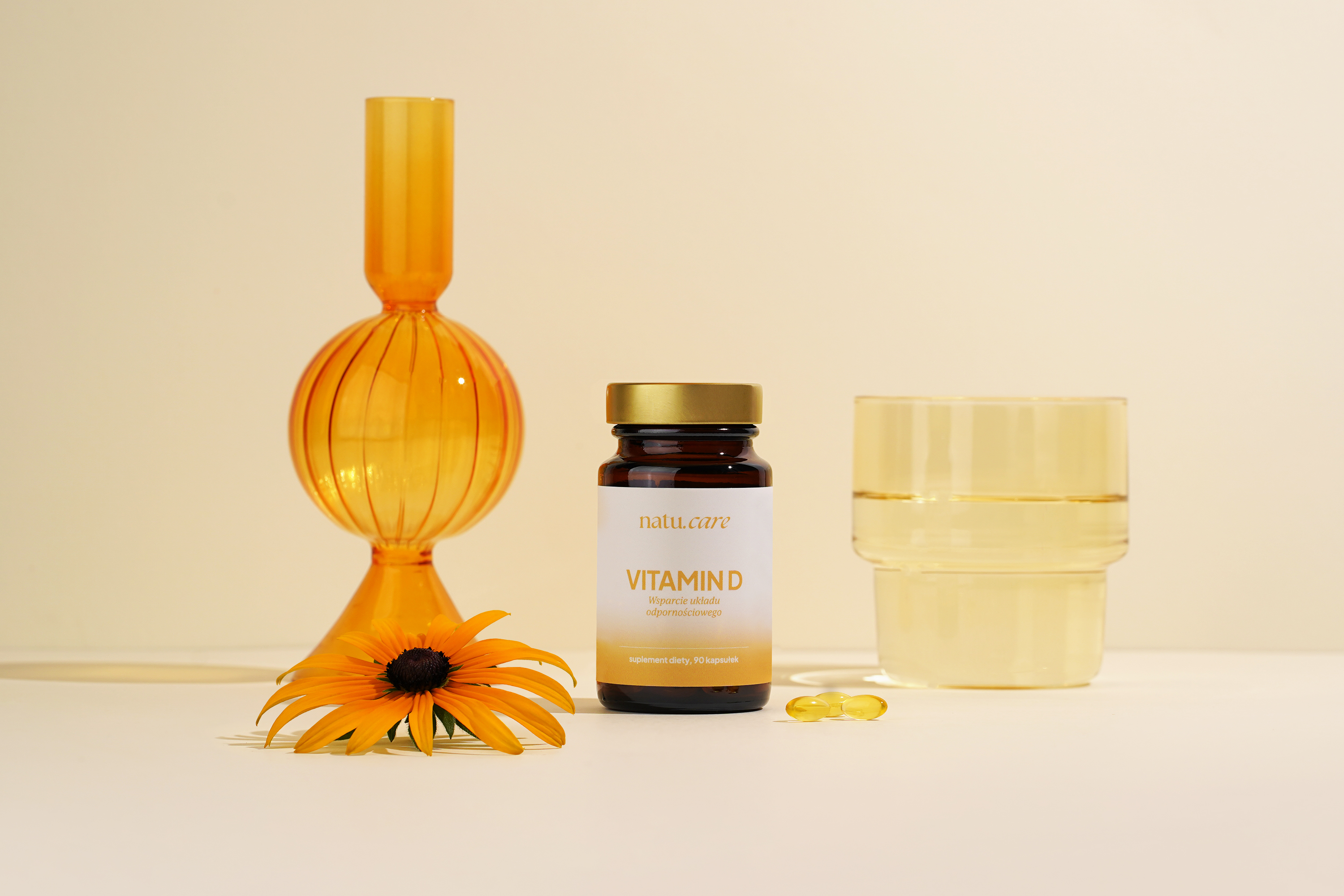
Zobacz, co dla Twojego zdrowia może zrobić Natu.Care Witamina D 2000 IU. -15% z kodem BLOG15
Natu.Care Witamina D 2000 IU
Natu.Care Witamina D 2000 IU wspiera prawidłowe działanie układu odpornościowego, utrzymanie zdrowych kości i zębów oraz utrzymanie prawidłowych funkcji serca, nerek i układu mięśniowego.
Sprawdź cenę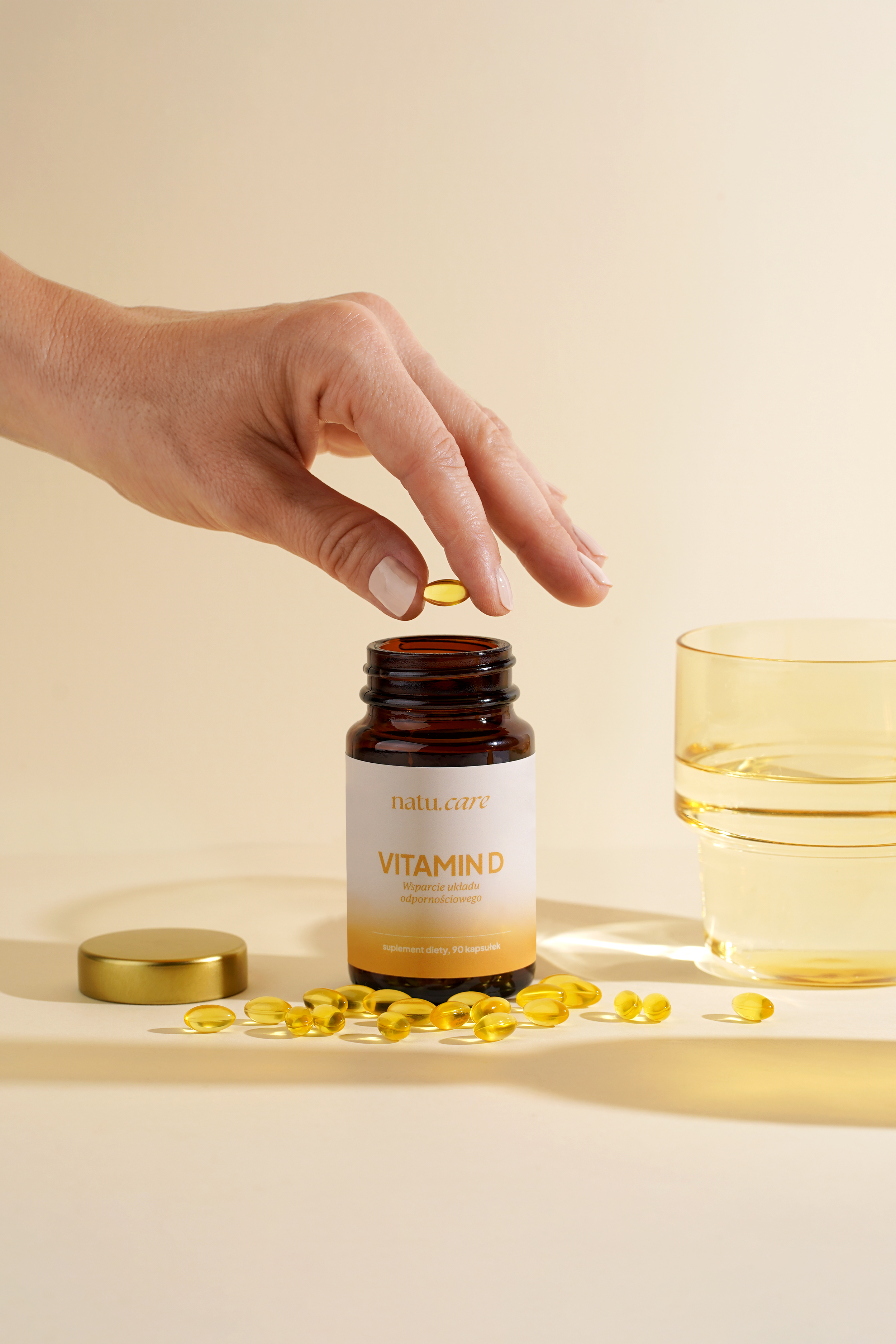
Świetny produkt, tabletki są małe i wygodne do połknięcia. Plus za wysoką jakość!Joanna
See also:
- Vitamin D3 [action, dosage, supplementation]
- Vitamin D3 drops [ranking + application + expert opinion] .
- Vitamin D3 [ranking + expert opinion] .
- Vitamin D [dosage + standards and recommendations] .
- Vitamin D3 K2 [whether you need to combine them + expert opinion]
- What is vitamin D? [sources, table, examples] .
- Vitamin D deficiency [symptoms + treatment] .
- Vitamin D overdose [symptoms + effects + what to do]
- Maximum dose of vitamin D [what + expert opinion]
Can you overdose on vitamin D?
.
Yes, it is possible to overdose on vitamin Dand. Overdosing occurs due to over-supplementation. However, let me reassure you - this is a very rare situation. Studies show that taking 60 000 international units (IU) vitamin D daily for several months can cause toxicityand.
An overdose is also referred to as vitamin D hypervitaminosis, vitamin D toxicity or vitamin D poisoning. While it is difficult to get to this critical state, it does not mean that we can supplement this vitamin without common sense.
Can you overdose on vitamin D from the sun?
.
You cannot overdose on vitamin D from intense exposure to the sunand. Phew! Remember to protect your skin with screen creams. You'll reduce the risk of skin damage and cancer and prevent wrinkles.
Natu.Care Vitamin D 2000 UI
Product description
Vitamin D plays a crucial role in our health and well-being. It affects calcium and phosphate metabolism, which translates to healthy bones and teeth. It also helps regulate the immune system, and studies indicate its influence on the functioning of the nervous system.
Vitamin D, although called a “vitamin,” is actually a prohormone that our body produces on its own, primarily under the influence of sunlight. Unfortunately, our modern lifestyle contributes to deficiencies of this essential vitamin. Working in enclosed office buildings, using (necessary!) SPF creams, and covering the body with clothing all make it very difficult, if not impossible, to obtain adequate levels of vitamin D from sunlight. This is why appropriate, year-round supplementation is so crucial.
Vitamin D from Natu.Care is a well-tested vitamin D3 suspended in safflower oil, a plant known for its numerous health benefits. The convenient, easy-to-swallow capsule will make supplementation a part of your daily, healthy routine, improving your overall well-being.
Pros and cons
Pros:
- Ensures proper functioning of the immune system
- Supports the maintenance of healthy bones and teeth
- Maintains proper heart, kidney, and muscle function
- Tested by an independent, certified laboratory
- Convenient and easy-to-swallow capsule
- Clean composition - free from added sugar, gluten, GMOs, lactose, and without preservatives or colorants
Cons:
- None.
Additional Information
Pregnant women and breastfeeding mothers should consult a doctor before using the product. This dietary supplement is intended for a healthy adult population up to the age of 75.
OstroVit Vitamin D 4000 IU
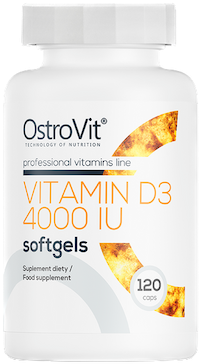
- Content vitamin D3: 4000 IU
- Form: capsules .
- Dose: 1 capsule per day .
- Sufficient for: 120 days .
Product description
OstroVit Vitamin D 4000 IU is a dietary supplement in the form of soft capsules, specially designed for peopleóing vitamin D deficiency, and especially recommended for seniorsów.
.Contains 4,000 IU of vitamin D per capsule, enabling effective dietary supplementation. The olive oil contained in the formula enhances the absorption of vitamin D, further enriching the supplement with healthy fats.
The supplement contains a wide range of vitamins and minerals.
The pack contains 120 capsules, allowing for four months of supplementation when taken with one capsule per day.
Pros and cons
OstroVit Vitamin D 4000 IU is a dietary supplement in the form of soft capsules, specially designed for peopleóing vitamin D deficiency, and especially recommended for seniorsów.
.Contains 4,000 IU of vitamin D per capsule, enabling effective dietary supplementation. The olive oil contained in the formula enhances the absorption of vitamin D, further enriching the supplement with healthy fats.
The supplement contains a wide range of vitamins and minerals.
The pack contains 120 capsules, allowing for four months of supplementation when taken with one capsule per day.
Additional information
OstroVit Vitamin D 4000 IU is a dietary supplement in the form of soft capsules, specially designed for peopleóing vitamin D deficiency, and especially recommended for seniorsów.
.Contains 4,000 IU of vitamin D per capsule, enabling effective dietary supplementation. The olive oil contained in the formula enhances the absorption of vitamin D, further enriching the supplement with healthy fats.
The supplement contains a wide range of vitamins and minerals.
The pack contains 120 capsules, allowing for four months of supplementation when taken with one capsule per day.
Dr. Jacob's Vitamin D3 drops
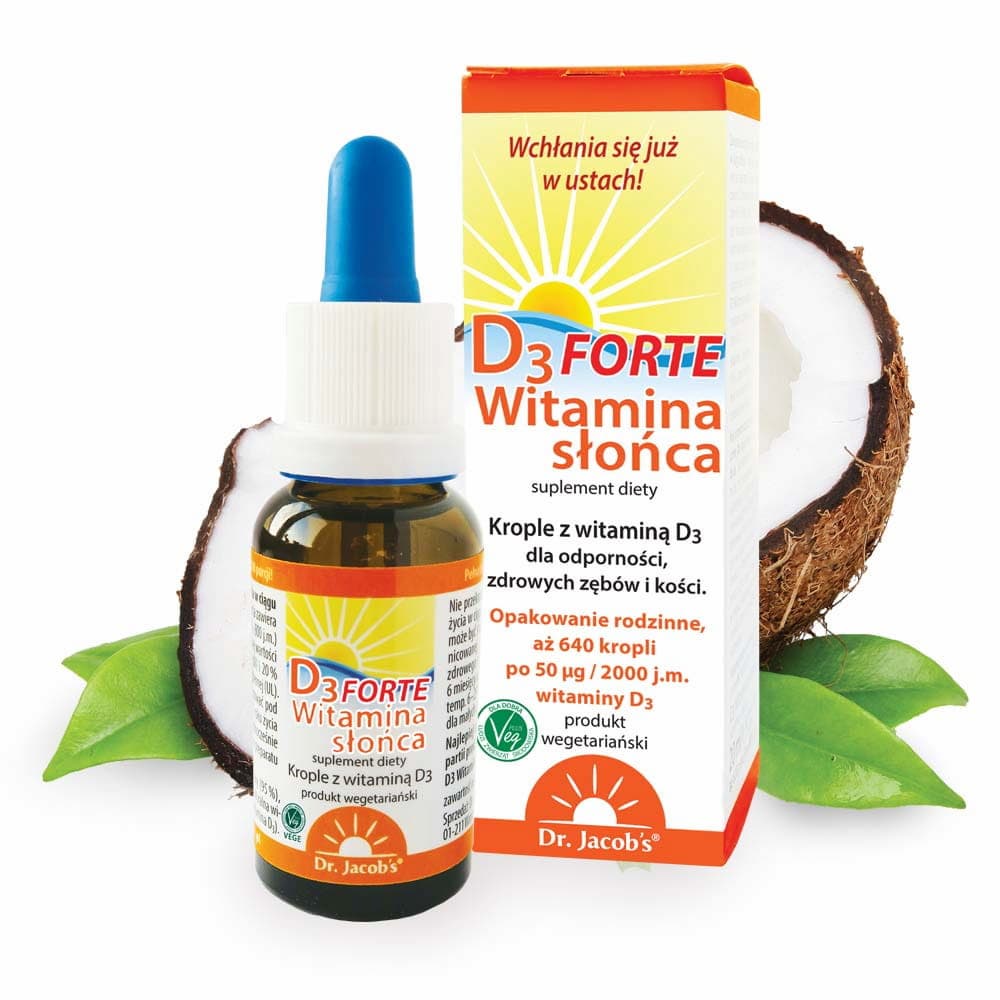
- Content vitamin D3: 800/1600 IU
- Form: drops .
- Dose: 1 or 2 drops daily .
- Sufficient for: 320–640 drops .
Product description
Sunshine Vitamin D3 FORTE is a dietary supplement containing a high dose of vitamin D3. Each drop of the product provides 800 IU of this essential vitamin for the proper functioning of the organism, whichóra supports the proper absorption of calcium and the maintenance of healthy bones, teethóra and muscles.
Pros and cons
Sunshine Vitamin D3 FORTE is a dietary supplement containing a high dose of vitamin D3. Each drop of the product provides 800 IU of this essential vitamin for the proper functioning of the organism, whichóra supports the proper absorption of calcium and the maintenance of healthy bones, teethóra and muscles.
Additional information
Sunshine Vitamin D3 FORTE is a dietary supplement containing a high dose of vitamin D3. Each drop of the product provides 800 IU of this essential vitamin for the proper functioning of the organism, whichóra supports the proper absorption of calcium and the maintenance of healthy bones, teethóra and muscles.
Vigantol witamina D3
Product description
Vigantol has been trusted by Poles for years. It is an over-the-counter medicine that you can buy at a good price at any pharmacy. It has a simple composition, without unnecessary additives and a small package that will fit into any home medicine cabinet.
Why is it worth it?
- The status of the medicine guarantees us the highest quality of the active ingredients, certainty about the dose and the effect of the preparation until the expiry date.
- Vigantol has an advantage over other over-the-counter vitamin D3 medicines because of the form of the drops.
- The drops are better absorbed by the body and do not need to be taken with a meal (unlike, for example, Vigantoletten, which is in tablet form and is recommended to be taken with a fatty meal).
Take note
- The bottle does not have a convenient dispenser. To measure the four recommended daily drops, turn the bottle upside down. The drops dispense slowly. When the liquid runs out, it is difficult to empty the bottle "dry" - a little is left inside.
- If the dispenser becomes clogged, gently tap the bottom of the bottle against the surface (tabletop, table) and then dispense the drops.
- You can use Vigantol for children, bearing in mind that 1 drop is 500 IU, and this is the requirement from the age of 3.
D-vitum
Product description
Oleofarm D-Vitum Forte Max 4000 IU is a dietary supplement in the form of capsules with high vitamin D content. The preparation is designed to supplement the diet of healthy adults over 75 years of age with this valuable active ingredient.
Pros and cons
Oleofarm D-Vitum Forte Max 4000 IU is a dietary supplement in the form of capsules with high vitamin D content. The preparation is designed to supplement the diet of healthy adults over 75 years of age with this valuable active ingredient.
Additional information
Oleofarm D-Vitum Forte Max 4000 IU is a dietary supplement in the form of capsules with high vitamin D content. The preparation is designed to supplement the diet of healthy adults over 75 years of age with this valuable active ingredient.
Expert opinion
OstroVit Vitamin D3 4000 + K2
Product description
A dietary supplement in tablets supplementing the diet with vitamin D and K. Vitamin D helps in the proper absorption and utilisation of calcium and phosphorus, and in maintaining a normal level of calcium in the blood. Vitamin K contributes to normal blood clotting and helps maintain healthy bones.
Pros and cons
A dietary supplement in tablets supplementing the diet with vitamin D and K. Vitamin D helps in the proper absorption and utilisation of calcium and phosphorus, and in maintaining a normal level of calcium in the blood. Vitamin K contributes to normal blood clotting and helps maintain healthy bones.
Additional information
A dietary supplement in tablets supplementing the diet with vitamin D and K. Vitamin D helps in the proper absorption and utilisation of calcium and phosphorus, and in maintaining a normal level of calcium in the blood. Vitamin K contributes to normal blood clotting and helps maintain healthy bones.
Expert opinion
Symptoms of overdose
.
Did you take too many drops or want to strengthen your child after an infection by giving them a little more capsule than it says on the leaflet? Are you nervously looking for symptoms - what could be wrong?"
.
Symptoms of vitamin D overdoseand:
-
nausea, vomiting,
. -
loss of appetite,
.
-
abdominal pains,
- lack of appetite
-
diarrhoea, constipation,
- diarrhoea.
-
increased thirst,
.
-
excessive sweating,
- excessive sweating.
-
frequent urination,
- excessive sweating,
- excessive urination.
-
increased calcium levels in the blood,
- .
-
Calcium accumulation in the arteries,
- .
Further complications of untreated hypervitaminosis D also includeand:
-
kidney stones,
. -
gallbladder stones,
.
-
kidney failure,
- kidney failure
-
bone damage,
- bone damage.
-
calcification (hardening) of arteries and soft tissues.
- .
Symptoms of vitamin D poisoning are primarily associated with hypercalcaemia, meaning excessively high levels of calcium in the bloodand.
Vitamin D overdose in pregnancy
.
The symptoms of an overdose will be the same as for any person. I found no studies on the effects of high doses of vitamin D on the foetus - however, it is better to be cautious and follow the doses recommendedand by the Polish Society of Gynaecologists and Obstetricians.
Vitamin D overdose in children
.
Symptoms of overdose in children will be the same as in adults and may give signals from different systems. In children, one of the first signs of overdose or excess vitamin D is a sweaty head..
 .
.
Marta Kaczorek Clinical nutritionist
You already know the symptoms of excess vitamin D, but as you can see - it's difficult to overdose on it. If you haven't been eating it in large quantities non-stop, you can breathe a sigh of relief. Read the article further to understand why more is not better.
Cause of vitamin D overdose
.
An overdose can occur withand:
-
accidental overdose,
. -
prescription error,
-
accidental overdose,
- .
-
abuse of supplements,
- .
Remember to consume the dosage prescribed by the doctor who ordered your supplementation, knowing your medical history, other medications you are taking, and the purpose of your vitamin D supplementand.
.
Diagnosis
.
The doctor will check your medical history, medications and supplements you are taking. He or she should take a thorough medical history and may carry out a physical examination.
If he or she suspects that you may have vitamin D hypervitaminosis, he or she may order tests, includingand:
- .
-
blood tests to check vitamin D, calcium and phosphorus levels (will determine if there is kidney damage),
. -
urine tests (will check the amount of calcium in the urine),
.
-
bone x-rays (will determine if there is bone damage),
- .
You may be interested in:
.
- Blood tests [how often to perform + how to prepare]
- Cortisol testing [standards + price] .
- Thyroid tests [which ones to perform + norms + results]
Treatment
.
If a vitamin D overdose is suspected or confirmed by tests, see your doctor immediately. Typically, depending on the patient's condition, treatment includes consultation, discontinuation of vitamin D supplementation and restriction of dietary calciumand.
The doctor may also prescribe intravenous fluids and medications such as corticosteroids or bisphosphonates. Patients should review their list of medications, supplements to adjust future vitamin D doses and avoid excessand.
How to prevent an overdose? Advice from a nutritionist
.
As nutritionist Marta Kaczorek says, it is the quality of supplementation that matters, not the quantity of supplement taken. We understand quality by:
-
selecting a supplement in the best possible form of absorption for us,
. -
Taking an individual dose for our needs with a doctor or pharmacist,
- .
-
systematic supplementation,
.
In the back of our minds we should have a diet and it - diverse, nutritious, combined with physical activity - should be the primary source of our good health and well-being. Before we take supplementation - let's have a blood test. Let's find out if we are deficient in vitamin D..
 .
.
Marta Kaczorek Clinical nutritionist
.
Safe supplementation - that is, how much?
.
For vitamin D to reach toxic or dangerous levels in the body, it must exceed 100 nanograms (ng) per mland. Fortunately, toxicity is unlikely if you control your daily intake and avoid excessive supplementation. Experts recommend that people with typical vitamin D levels should not exceed 2000 IU per day .
Did you know that in spring and summer, 15 minutes of sun exposure, between 10am and 3pm with arms and legs uncovered, will give you as much as supplementation with 2000 IU of vitamin D ?
.
I'll take more... yes in case you need it!
.
Parents often give their children a little more vitamin D drops "as a backup". In addition, they often give their child cod liver oil or omega acids 3-6-9, which also contain vitamin D. They then unknowingly combine 2 sources of supplementation.
 .
.
Marta Kaczorek Clinical nutritionist
"Another source of vitamin D for young children is breast milk or modified milk. Modified milk of about 500 ml/day already covers the child's daily requirement. And this can already be the 3rd source of vitamin D for our baby", adds the nutritionist.
.
Parents should be alert to any supplementation in their child, as well as their diet. We have more and more vitamin D-fortified products on the market (drinks, snacks) and we can lose track of the daily dose. If we do not overdose, we are simply throwing money down the drain on unnecessary supplementation.
There is no sunshine in Poland
.
Listening to many stories among family and friends, I have noticed that we like to experiment with the dosage of medicines and supplements on our own. "Vitamin D? You have to take a lot because there is no sunshine in Poland!" - I once heard from a close friend. It's true that we have a problem with lack of sunshine in autumn and winter, but that doesn't mean that four drops or one more tablet will be a good choice.
"Supplements don't work anyway, so I take, as a rule, times two so that anything gets absorbed" - another quote, also heard at a social gathering.
Let's not perpetuate such opinions - they are dangerous and teach bad habits. They steer us away from enriching our diets (it's easier to take a capsule) and teach us to treat supplements or medicines like harmless candy (I'll add a drop, I'll take a capsule twice).
 .
.
Marta Kaczorek Clinical nutritionist
.
Vitamin D for animals...for humans?
.
In July 2022, a woman overdosed on vitamin D by using excessive amounts of a dietary supplement intended for horses.
She was using vitamin D in a combination formulation with K2 MK7 at a dose of 50,000 IU per day. She added fuel to the fire by also supplementing with large amounts of calcium. She survived, but was in very poor condition.
Reading about this unfortunate event, I came across many articles and comments from people who ridiculed vitamin D overdosing. And this is still the case for horses! As the above case and many others show - you can.
.
This case may seem ridiculous and funny to some, but the victims of hypervitaminosis are often older people. Such as our parents or grandparents. We should educate each other and explain what healthy supplementation is all about.
Today, ask your loved ones what they are supplementing and in what dose. Perhaps unnecessarily? Maybe too much?
See also:
- Omega acids [types + properties + deficiency] .
- Omega-3 fatty acids [effects + types] .
- Omega-3 in tablets [ranking + expert opinion] .
- Tran [what it is + action + dosage] .
- DHA [what it is + properties and sources]
- Black cumin oil [properties + contraindications]
We hope you can see from this article on vitamin D overdose that it is just one of many vitamins we can overuse. Take care of yourself. Get yourself examined. Do a review of medications, supplements, enrich your diet. Spend time being active, outside. Let the sunshine bathe you.
Are you supplementing with vitamin D? Or do you know someone who likes horse doses of vitamin D? Write me in the comments, I'm curious.
Summary
.
Remember:
- An overdose is also referred to as vitamin D hypervitaminosis, vitamin D toxicity or vitamin D poisoning. .
- It is possible to overdose on vitamin D, although it is difficult. However, this does not mean that we can supplement it without controlling the dose.
- It is not possible to overdose.
- It is impossible to overdose on vitamin D from the sun. .
- The average dose of vitamin D3 for an adult is 2000 IU. .
- Before starting vitamin D3 supplementation, test your serum vitamin D3 concentration. Perhaps you have enough of it? Don't spend money on supplements if you don't need to. .
- Talk to your relatives about whether they know how to dose supplements safely. .
FAQ
.After what time does vitamin D levels drop?
.Storage of vitamin D3 produced when exposed to UV radiation is stored in adipose tissue for about 2 months. Norwegian researchers found that in adults who supplemented with vitamin D3 for 5 years, its concentration in adipose tissue began to decrease one year after the end of supplementation.
Is it possible to take 8000 vitamin D?
.What dose of vitamin D3 you should take is decided by your doctor based on your health assessment, blood test results and individual needs. Do not make a decision about supplementation with vitamin D3 based on a mere hunch that it is worth doing just in case.
How to get rid of a high dose of vitamin D from the body?
.To get rid of excess vitamin D3, it is usually recommended to stop supplementation and limit calcium in the diet. In more serious conditions, your doctor may prescribe intravenous fluids and medications such as corticosteroids or bisphosphonates. Excess vitamin D from the sun is naturally stored in adipose tissue, but too much of this vitamin extracted from over-supplementation is dangerous.
What is the lethal dose of vitamin D?
.The lethal dose of vitamin D is not precisely known, but scientific studies suggest that taking 60,000 international units (IU) of vitamin D per day for several months can cause toxicity and lead to serious damage to some organs.
How many units of vitamin D can be taken per day?
.The daily requirement for vitamin D is an individual issue and depends, among other things, on age, health status and diagnosed diseases. Polish standards indicate that an adult should take 2000 IU per day. The requirement in autumn and winter increases to 4000 IU.
.
Sources
.See all
.Asif, A., & Farooq, N. (2022). Vitamin D Toxicity. In StatPearls. StatPearls Publishing. http://www.ncbi.nlm.nih.gov/books/NBK557876/
Graidis, S., Papavramidis, T. S., & Papaioannou, M. (2021). Vitamin D and Acute Kidney Injury: A Two-Way Causality Relation and a Predictive, Prognostic, and Therapeutic Role of Vitamin D. Frontiers in Nutrition, 7, 630951. https://doi.org/10.3389/fnut.2020.630951
Grant, W. B., Al Anouti, F., & Moukayed, M. (2020). Targeted 25-hydroxyvitamin D concentration measurements and vitamin D3 supplementation can have important patient and public health benefits. European Journal of Clinical Nutrition, 74(3), 366-376. https://doi.org/10.1038/s41430-020-0564-0
Marcinowska-Suchowierska, E., Kupisz-Urbańska, M., Łukaszkiewicz, J., Płudowski, P., & Jones, G. (2018). Vitamin D Toxicity-A Clinical Perspective. Frontiers in Endocrinology, 9, 550. https://doi.org/10.3389/fendo.2018.00550
Sizar, O., Khare, S., Goyal, A., & Givler, A. (2022). Vitamin D Deficiency. In StatPearls. StatPearls Publishing. http://www.ncbi.nlm.nih.gov/books/NBK532266/
Tebben, P. J., Singh, R. J., & Kumar, R. (2016). Vitamin D-Mediated Hypercalcemia: Mechanisms, Diagnosis, and Treatment. Endocrine Reviews, 37(5), 521-547. https://doi.org/10.1210/er.2016-1070
Zadka, K., Pałkowska-Goździk, E., & Rosołowska-Huszcz, D. (2018). The State of Knowledge about Nutrition Sources of Vitamin D, Its Role in the Human Body, and Necessity of Supplementation among Parents in Central Poland. International Journal of Environmental Research and Public Health, 15(7), 1489. https://doi.org/10.3390/ijerph15071489
Zimmer, M., Sieroszewski, P., Oszukowski, P., Huras, H., Fuchs, T., & Pawłosek, A. (2020). Recommendations of the Polish Society of Gynaecologists and Obstetricians for supplementation in pregnant women. Practical Gynaecology and Perinatology, 5(4), Article 4.
..
Editorials
Meet the team


Editor
Graduate of Journalism and Artes Liberales at the University of Warsaw. Since 2017, he has been working with the biggest portals in Poland and abroad as an editor. Previously worked for 3 years in one of the leading pharmaceutical companies - he knows the health and beauty industry inside out. In his free time, he most enjoys playing tennis or skiing.
![Vitamin B12 - where it occurs in the diet and in products [table].](https://cdn-resources.natu.care/uploads/1/balanced_diet_nutrition_healthy_eating_concept_food_sources_rich_vitamin_b12_cobalamin_kitchen_table_1_b84f75bda2.jpg)
Find out where vitamin B12 is found and which products will provide you with it.

Vitamin PP also known as niacin or vitamin B3 supports the proper functioning of the body.
![What is NMN? Effects, effects, side effects [supplements].](https://cdn-resources.natu.care/uploads/1/science_background_with_molecule_atom_abstract_structure_science_medical_background_3d_illustration_1_a5ec4d9cec.jpg)
Everything you want to know about NMN: properties, effects, safety and expert opinions.
